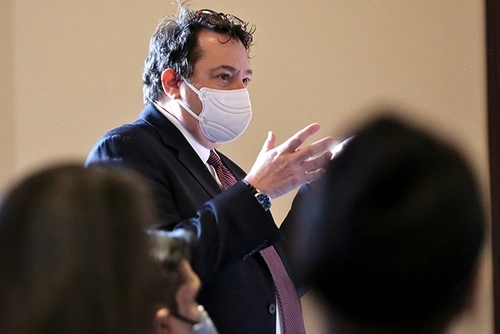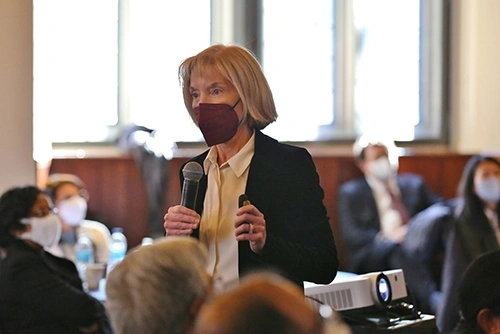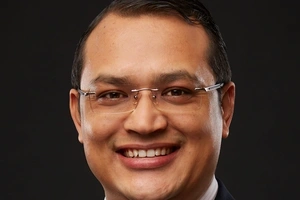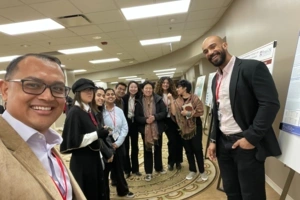These fraudulent messages do not reflect the values of Penn or Penn GSE. We sincerely apologize for the harm and distress these emails have caused and appreciate your understanding as we work quickly to resolve the issue.
Faculty Expert
-
Peter Eckel
Senior Fellow and Director of Leadership Programs, Penn AHEAD
Policy, Organizations, Leadership, and Systems Division
A partnership between Penn GSE and the India-based Tata Institute of Social Sciences is providing nearly two dozen senior administrators from a number of India's universities and institutes with a forum to discuss and learn more about the complexities of administration and governance in higher education.
Higher education in India has undergone dramatic expansion over the past half-century, and the Indian government is investing in the management and administration skillsets of academic leaders who will soon find themselves in broader leadership roles. Part of this investment includes the Leadership for Academicians Program, a three-week course developed in coordination with the University of Pennsylvania.
While the first two weeks of the program take place in India, the third takes place on the University of Pennsylvania campus — where these future leaders gain invaluable experience learning about how US higher education institutions wrestle with current issues in university administration and management.

“Penn tends to get accolades for its academic prowess and capacity, but I think the administrative aspect — the sophistication with which Penn supports its academic mission — is an important piece of the puzzle to share with the world,” says Penn GSE Senior Fellow Peter Eckel, Director of Leadership Programs for Penn AHEAD, who spearheaded discussions throughout the week. “Complex data systems, outstanding budgeting processes, comprehensive faculty support from onboarding to retirement — so much of this happens behind the scenes. We’re lifting the curtain on all of that hard, creative work.”

Once at the University of Pennsylvania campus, participants heard presentations and engaged with Penn administrators and faculty in open discussions on higher education fundamentals like budgeting, data-driven decision-making, faculty workload, tenure, promotion, and navigating a student-driven and market-competitive environment.
According to Eckel, response to the program — now in its second year, though it was interrupted by the COVID-19 pandemic — has been overwhelmingly positive, with energetic discussion that helps participants contextualize the week’s lessons and bring those perspectives back home for practical application.
“One of the benefits of doing these programs cross-culturally is assumptions we take for granted get surfaced, elevated, and questioned,” says Eckel. “When I design leadership programs, my primary goal is to help experienced administrators think differently about their work and be more intentional. It provides reflective time and helps everybody think about their roles.”
The week in Philadelphia also featured trips to Widener and Cabrini Universities to help provide an even broader glimpse at higher education in the United States.
Due to pandemic-related safety concerns and travel restrictions, thus far the program at Penn is the only one — of the approximately 20 such programs the Indian government has invested in globally — to be completed thus far. The backdrop of the pandemic, according to Eckel, underscores the importance of building and maintaining international relationships through programs like these.
“It means a lot, particularly right now, to create an ongoing and sustained dialogue between US and Indian universities about our common and unique challenges,” he says.







